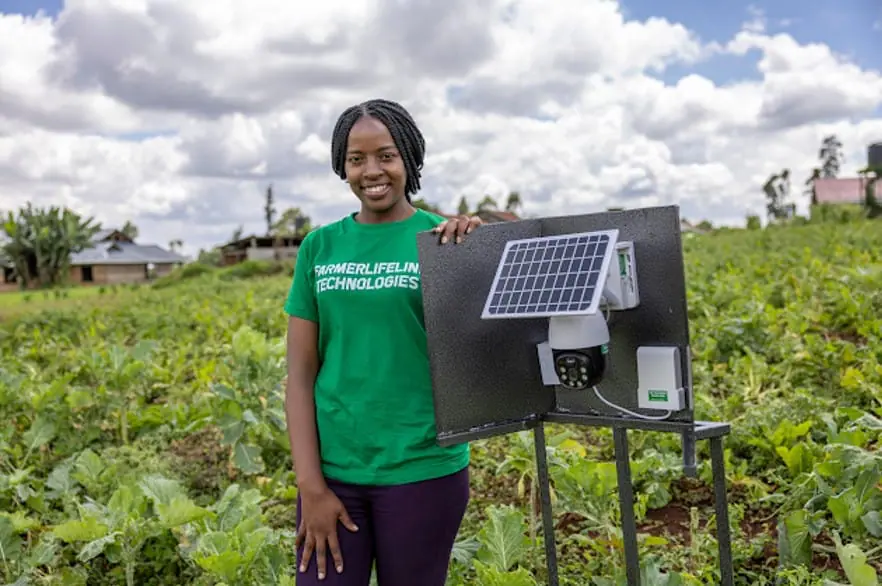My personal mission is to empower farmers with the tools, knowledge, and support they need to overcome these challenges and thrive.
Esther Kimani Founder and CEO of Farmer Lifeline Technologies

Esther Kimani - Founder and CEO of Farmer Lifeline Technologies
2024 WE Empower UN SDG Challenge Finalist, Sub-Saharan Africa Region
Esther Kimani, Founder and CEO of Farmer Lifeline, has channeled her connection to agriculture into a mission to revolutionize farming for marginalized communities. Raised in a farming community on the slopes of the Aberdare mountains, Kimani witnessed the adversities farmers face due to pests, diseases, and climate change. This exposure ignited a passion within her to bring meaningful change to these communities.
Empowering marginalized communities
Kimani has emerged as a leading figure in Africa’s agricultural robotics and Climate Agtech arena. At Farmer Lifeline Technologies, she leverages AI to transform Africa’s agricultural landscape, empowering small-scale farmers to combat climate change by addressing emissions from agricultural activities. Through her initiatives, Kimani not only builds resilience against climate impacts but also fosters sustainability and prosperity within rural areas.
Farmer Lifeline is dedicated to eradicating hunger and extreme poverty among millions of smallholder farmers who suffer significant crop losses due to delayed detection of pests and diseases. Under Kimani’s leadership, the organization has pioneered AI technology that empowers marginalized communities, with a focus on women who make up 65% of the beneficiaries.
Commitment to United Nations Sustainable Development Goals
Kimani’s work aligns with multiple United Nations Sustainable Development Goals, particularly SDG 2 (Zero Hunger). Farmer Lifeline’s patented devices have detected over 1.4 million crop pests and diseases, enabling farmers to protect their crops and livelihoods (SDG 1: No Poverty). Their technology has also mobilized over 42,000 smallholder farmers to take action against climate change, enhancing resilience and promoting sustainable agricultural practices (SDG 13: Climate Action).

Looking ahead
By the end of the year, Farmer Lifeline is positioned to achieve substantial savings in crop loss value while significantly boosting farmers' yields. The goal is to deploy the technology to 300,000 small-scale farmers in Kenya, with a particular emphasis on reaching women and small-scale farming communities in the southern part of the country, ensuring that underserved populations benefit from these initiatives.
Farmer Lifeline is also committed to driving meaningful emissions reductions resulting from farmers’ activities. By the end of the year, the organization targets to significantly decrease emissions resulting from small scale farmers in Kenya as well as enable the farmers to earn from tracking their carbon footprint.
Esther Kimani’s journey exemplifies innovation, resilience, and an unwavering commitment to uplifting farming communities. Her work not only enhances food security but also paves the way for a more equitable and sustainable future.
I am driven by a deep sense of empathy and a commitment to social justice, knowing that by lifting up farmers and their families, we can create a ripple effect of positive change that extends far beyond the fields.
Esther Kimani
By Grace Reiter, WE Empower Intern